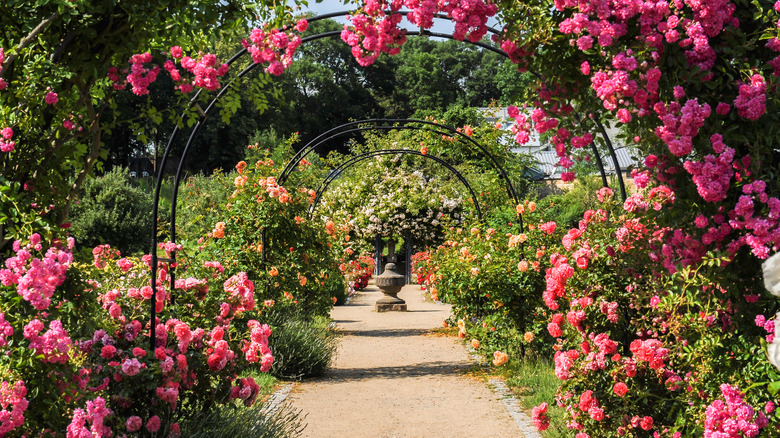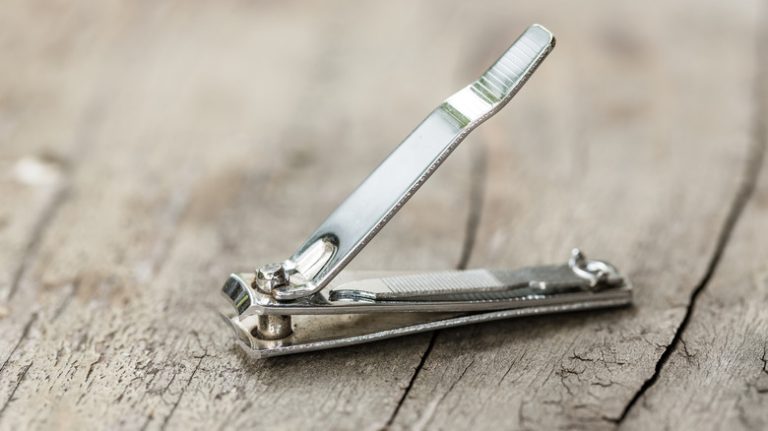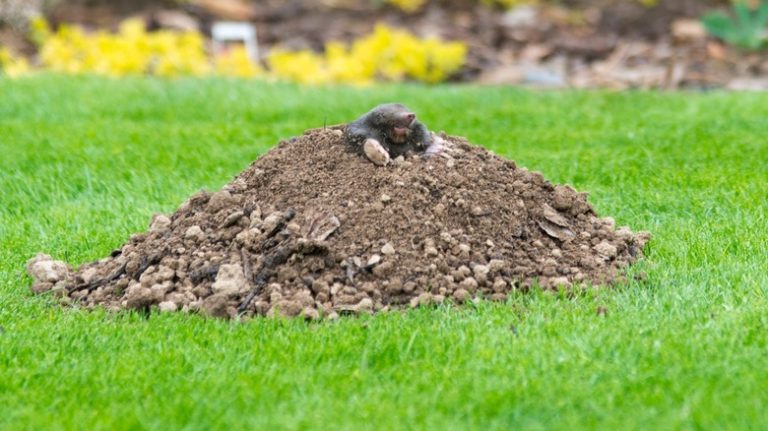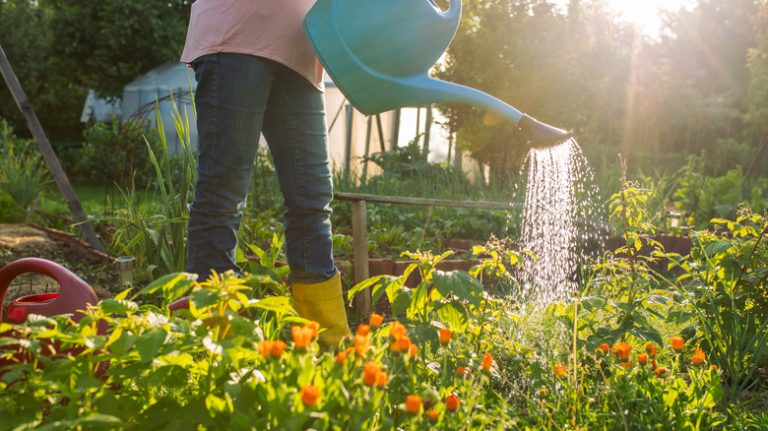Climbing roses (Rosa setigera) are varieties of roses that, unlike shrub types, form long canes and can be grown up trellises. Despite the difference in form, these types still have similar care requirements to other roses and are vulnerable to the same pests. Anyone who has grown roses is familiar with the frustration of seeing the beautiful plants covered in aphids or other insects. Because of this, it’s unsurprising that there are a variety of popular DIY pesticide recipes using products like vinegar, baking soda, and dish soap. However, as good as these might sound, many trusted sources such as the Virginia State University Cooperative Extension note that these can come with some serious potential risks. Therefore, you should think twice about using DIY options on your climbing roses. However, there are many other safe and effective organic pesticide methods including planting companion plants, mechanically removing pests, and even using neem oil.
Just like other types of roses, climbing roses need at least six hours of sunlight a day to thrive and benefit from a fertilizer formulated for the flowers. They generally require about an inch of water per week during the growing season, either from rain or irrigation. Keep your roses pruned and remove dead or dying branches to help the plant stay healthy and disease-free. Good pruning encourages airflow through the plant which can go a long way in preventing fungal disease. Always clean your shears between uses so you don’t accidentally spread diseases between plants.
The risks of using DIY pesticides on climbing roses
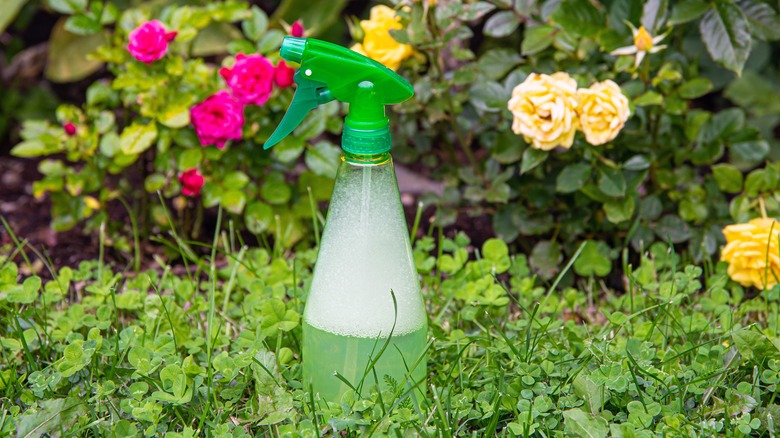
While many people have reported great success using homemade pesticides with a mix of vinegar and baking soda on climbing roses, both of these ingredients are potentially damaging to your garden. Though it seems difficult to believe that basic kitchen staples can be harmful, vinegar is an acid and, depending on the concentration, can easily burn or even kill some plants. There is some evidence to support baking soda (sodium bicarbonate) as a fungicide, but it can also cause unintended consequences as, even when diluted, it can be phytotoxic. This means it can damage your roses or other plants.
Dish soap, another popular ingredient in DIY pesticide recipes, also has serious drawbacks. While dish soap can potentially kill bugs that damage your roses, they can also kill or harm beneficial insects at the same time. These detergents can also strip plants’ leaves of their protective outer layer, damaging them and potentially making them even more vulnerable to pests and disease. Overall, as Oregon State University points out, recipes containing these ingredients haven’t been scientifically tested and therefore aren’t safe to use on roses. They also may not be very effective, meaning that you could waste time, energy, and money trying out these methods just to find that they don’t work.
Better organic options for pest-free climbing roses
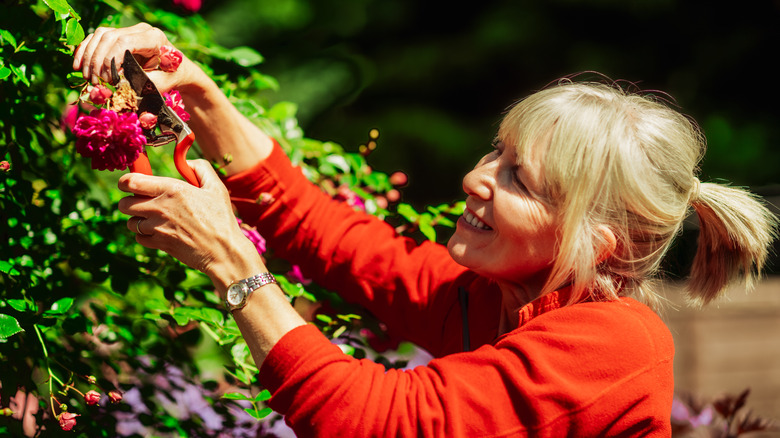
While DIY pesticides aren’t the best way to deal with diseases and pests on your climbing roses, that doesn’t mean harsh insecticides are your only options for protecting these plants. Instead, one of the best ways to manage aphids on your roses is to encourage natural predators of these pests to live in your garden. A variety of insects, including ladybugs and parasitic wasps, feed on aphids. Planting companion flowers like sweet alyssums, echinacea, and cosmos near your climbing roses can encourage these beneficial predators to move in and remove the pests for you.
If an aphid or spider mite infestation isn’t that severe, you can spray them off of your roses and other plants using a garden hose with a strong stream. Further, if there are both aphids and ants on the roses, remove both insects because the ants are protecting the aphids from predators. Pruning dead stems off your climbing roses is another way to ensure that insects don’t overtake them, as pests may be more likely to feed and stay inside dead branches. Roses that are still being decimated by pests even after trying these strategies can be covered in products like neem oil and insecticidal soaps. These organic products are specifically-formulated for use on plants and are low-risk, as long as you follow the directions carefully.

